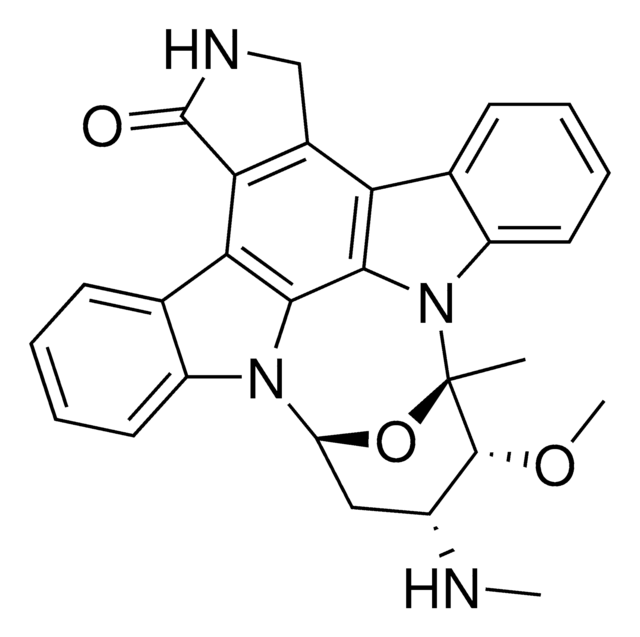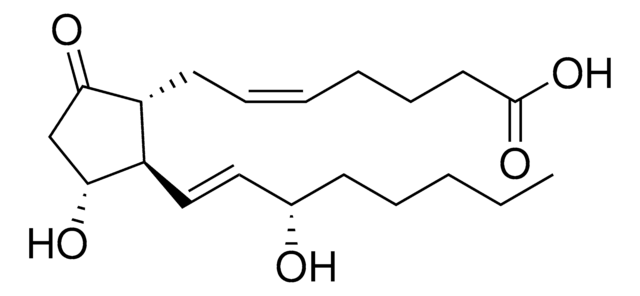S7076
SB 202190 monohydrochloride hydrate
≥98% (HPLC), solid, p38 MAP kinase inhibitor
Synonym(s):
4-(4-Fluorophenyl)-2-(4-hydroxyphenyl)-5-(4-pyridyl)-1H-imidazole monohydrochloride hydrate, 4-[4-(4-Fluorophenyl)-5-(4-pyridinyl)-1H-imidazol-2-yl]phenol monohydrochloride hydrate
About This Item
Recommended Products
Product Name
SB 202190 monohydrochloride hydrate, ≥98% (HPLC)
Quality Level
Assay
≥98% (HPLC)
form
solid
storage condition
desiccated
color
white to beige
solubility
DMSO: ≥12 mg/mL
originator
GlaxoSmithKline
storage temp.
2-8°C
SMILES string
O.Cl.Oc1ccc(cc1)-c2nc(-c3ccc(F)cc3)c([nH]2)-c4ccncc4
InChI
1S/C20H14FN3O.ClH.H2O/c21-16-5-1-13(2-6-16)18-19(14-9-11-22-12-10-14)24-20(23-18)15-3-7-17(25)8-4-15;;/h1-12,25H,(H,23,24);1H;1H2
InChI key
CZZOICWZVYZUNP-UHFFFAOYSA-N
Application
Biochem/physiol Actions
Features and Benefits
Signal Word
Warning
Hazard Statements
Precautionary Statements
Hazard Classifications
Eye Irrit. 2 - Skin Irrit. 2 - STOT SE 3
Target Organs
Respiratory system
Storage Class Code
11 - Combustible Solids
WGK
WGK 3
Flash Point(F)
Not applicable
Flash Point(C)
Not applicable
Choose from one of the most recent versions:
Already Own This Product?
Find documentation for the products that you have recently purchased in the Document Library.
Customers Also Viewed
Articles
The mitogen-activated protein kinase (MAPK) family consists of both stress activated (SAPK) and mitogen-activated (MAPK) protein kinases. They form a network of signal transduction cascades that mediate cellular responses to a diverse range of stimuli, including growth factors, chemical or osmotic stress, irradiation, bacterial infection and proinflammatory cytokines.
Organoid culture products to generate tissue and stem cell derived 3D brain, intestinal, gut, lung and cancer tumor organoid models.
Our team of scientists has experience in all areas of research including Life Science, Material Science, Chemical Synthesis, Chromatography, Analytical and many others.
Contact Technical Service

![[Leu15]-Gastrin I human ≥95% (HPLC)](/deepweb/assets/sigmaaldrich/product/structures/153/342/d4cb3dd7-13f1-46cf-8d1f-3907a5de7a83/640/d4cb3dd7-13f1-46cf-8d1f-3907a5de7a83.png)











